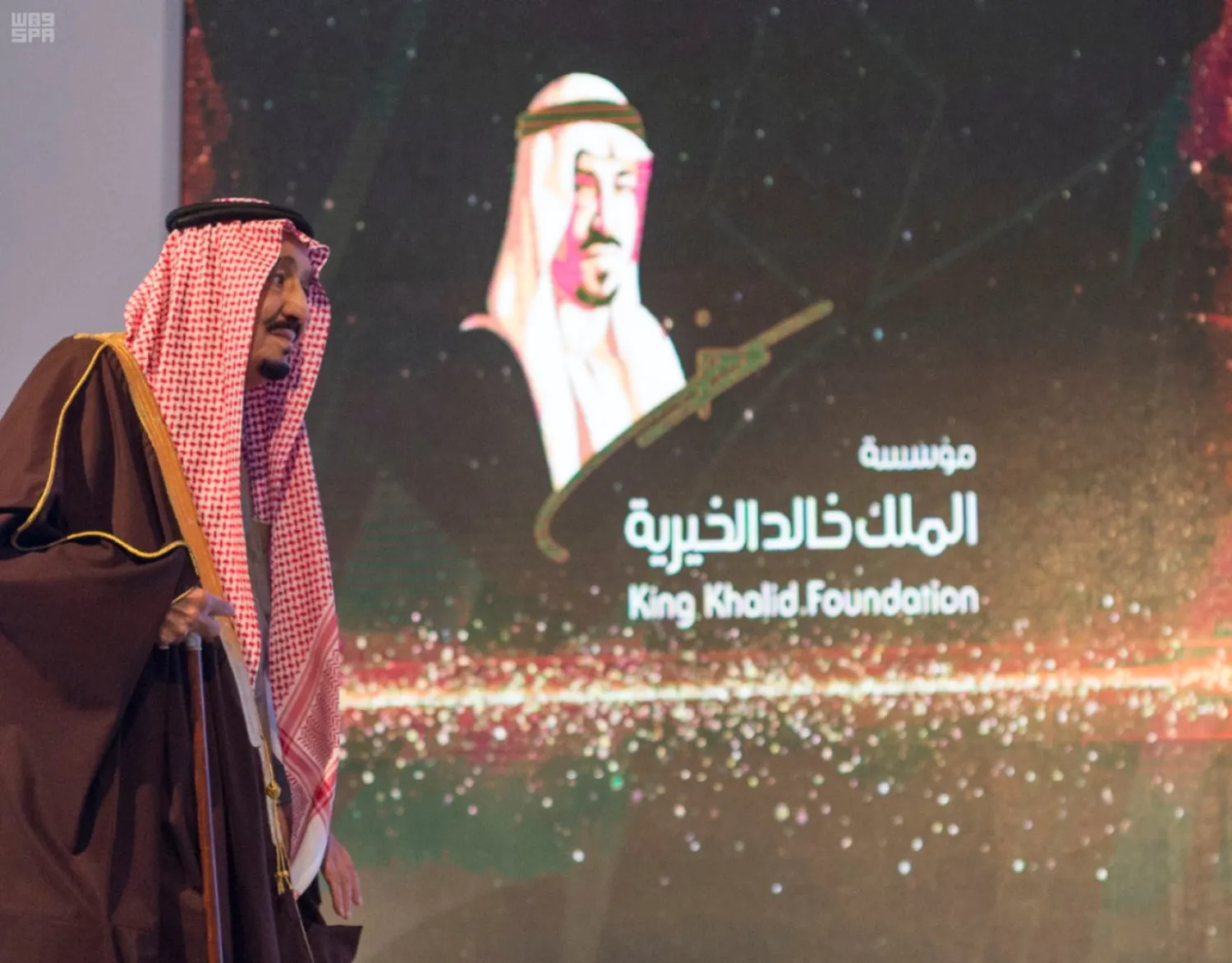Custodian of Two Holy Mosques King Salman bin Abdulaziz patronized in Riyadh on Monday the King Khalid Prize 2017 honoring ceremony, reported the Saudi Press Agency.
He was received At the venue by Prince Faisal bin Bandar bin Abdulaziz, Governor of Riyadh Region; Prince Faisal bin Khalid bin Abdulaziz, Governor of Asir Region, Chairman of the council of trustees of King Khalid Charitable Foundation and Chairman of the prize's panel; Prince Dr. Husam bin Saud bin Abdulaziz, Governor of Al-Baha Region; Prince Mohammed bin Khalid bin Abdullah Al-Faisal; Prince Mohammed bin Abdullah bin Khalid bin Abdulaziz; Prince Mohammed bin Abdulrahman bin Abdulaziz, Deputy Governor of Riyadh Region; Prince Saud bin Salman bin Abdulaziz, a number of other princes, ministers and members of the prize's panel.
Addressing the gathering, Prince Faisal bin Khalid bin Abdulaziz said the King Khalid prize was designed to promote the spirit of positivity and innovation among Saudi citizens to have a positive impact on the development and prosperity of the society. He thank King Salman and Crown Prince Mohammed bin Salman for lending support for human work in general and the King Khalid foundation and its annual prize in particular.
King Salman then gave away the three prizes to their winners.
The first of the three-shared prize in the branch of "development partners" was awarded to Sami Al-Harbi for his four-year initiative aimed at providing support for victims of cancer regardless of their nationality or age in the Kingdom.
Abdullah Al-Hawas won the second prize of the same branch for his initiative aimed at simplifying values and knowledge to children between the ages 4 and 12.
The prize for the third place of development partners went to Yazeed Al-Shdookhi for his initiative aimed at providing free of charge medical advice for limited income families.
The monarch then presented the prizes shared between three winners on the "excellence of non-profit organizations" branch.
The first one was awarded to the chairman of Al-Mawadah (amicability) Association for family development in Makkah Region Engineer Faisal Al-Samnoodi. The second prize was given to chairman of the Association for family development in Al-Madinah region Engineer Abdulrazaq Makhdoom, while the third prize went to the Al-Kawther health charitable association in Assir Region. It was received by its chairman Dr. Jubran Al-Gahtani.
The prize on the "Responsible Competitiveness" aimed at encouraging private sector facilities to adopt pioneering practices in the field of accountable competitiveness was divided over four enterprises: Al-Hafr (excavation) Arab company, Saudi Arabian company for Mining, Al-Sharq Al-Awsat (Middle East) company for Paper Manufacturing and Production and the Special Direction Company.
The event was attended by a number of princes, ministers and senior civil and military officials.









